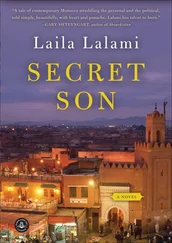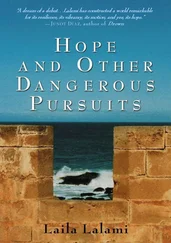The guards rushed to greet the new governor and apologize for their careless protection of military quarters. There were no Indians around here anymore, they explained, and most of the settlers preferred to stay on their plantations rather than in town. Fumbling with their keys, they unlocked the doors to the rooms and let in the governor and the friars. But I stayed behind with Satosol under the arcade. He wore a white shirt, which looked tight over the paunch he had grown since I had last seen him. His eyes flickered with a fierce curiosity. Are the others with you? he asked.
No.
They stayed in the big city?
Cabeza de Vaca went back to his country. Dorantes and Castillo married women of their kind. They have estates now, not far from Tenochtitlán.
Did my sister come back with you?
No, she is still with Dorantes. She had a baby.
Boy?
Girl.
What about my cousin? (He meant Kewaan, the wife of Castillo.)
She stayed behind, too. But what are you doing in the barracks? I asked him. Guzmán had been arrested only a few weeks after our passage through his town, so I knew that the reconnaissance mission for which he had hired Satosol had not taken place.
I still have the room, Satosol said. He pointed upstairs. And look, he said. He pulled out a knife and, by way of demonstrating its sharpness, he pricked his thumb with it. Instantly a bead of blood appeared; he licked it.
But what do you do here? I asked.
Same as you, brother. Whatever needs to be done.
We are not the same. Brother.
Then what are you doing with these new white men?
You ask too many questions.
I had never been close with Satosol, but for the three weeks I stayed in Compostela he shadowed me, asking me where I was going and what I was doing. If I sold my frilly shirt in order to buy paper and ink, he asked me why I had gotten rid of such fine cloth. If I sat down to write by the light of a candle, he asked me when I had become a notetaker like the white men. If I spoke to one of my companions in a hushed voice, he asked me what I was plotting. If I looked for wild garlic in the fields around the town, he asked me if my wife was pregnant. The more guarded my answers were, the more insistent he became, so that I spent much of my time avoiding him altogether.
The reason for our long stay in Compostela was that Coronado was interviewing the settlers to find out why they had abandoned their homes. The town was too far from their estates, they complained, where they needed to remain if they wanted to keep a close eye on their laborers. In addition, the Indians who were slaves were too lazy to work, while those who were free did not pay the tribute imposed on them by law. So Coronado gave orders to build new barracks closer to the estates, awarded more lands to the settlers, told them they needed to treat the Indians better, and said he would return in a few weeks to ensure that his orders had been carried out.
THE FIRST THING I noticed when we arrived in Culiacán was that Melchor Díaz’s mustache had become even more elaborate. It reached all the way to his earlobes, its ends maintained in place by means of some mysterious grease. He was standing in the middle of the dusty road, flanked by two of his men, their muskets pointing in opposite directions. To the left, the horse run was empty. To the right, the Indian settlement looked deserted. It was as if all the Indians that had been in Culiacán — both its natives and the captives my companions and I had brought with us — had disappeared. But the garrison looked immutable; it was squat, well guarded, and teeming with Díaz’s men. Before he had even dismounted, Coronado asked Díaz why he had not yet captured the rebel Ayapín.
Because someone else will replace him, Díaz said. Someone who might be even worse than him, which I know sounds hardly possible. But believe me, Don Francisco, this rebellion will continue as long as the conditions of the Indians remain the same. Nuño de Guzmán told me …
The era of Guzmán is over.
Yes, Díaz said. I was not his most fervent supporter, I assure you.
Peaceful conquest is the new way.
Yes, yes. I myself have been saying this for some time, as I hope Cabeza de Vaca has reported to the viceroy. But I will find Ayapín for you.
I hope so, Coronado said. Otherwise I might have to make some changes.
The blunt threat made Díaz frown. He seemed offended that a man of his age and long experience in the frontier should be spoken to in this way. But he dared not say anything in return and only watched while Coronado handed his reins to a servant and walked into the barracks.
The viceroy’s plan called for Coronado to stay in Culiacán for a few weeks, while the friars, the Amigos, and I went on an advance mission to the north. Our task was to bring back a detailed report of the land, including information about its trails, water sources, towns, tribes, and the alliances between them. In short, we were to find out everything we could to facilitate the governor’s entrada.
While waiting for the Amigos to prepare supplies for our journey, I took long walks around the outpost with my greyhounds. I had traded or given away all of my Castilian clothes by then and wore a leather coat over a cotton tunic, of the kind made by the tribes that dwelled in Nueva Galicia. Oyomasot, too, had discarded the dresses she had found constricting, especially in her new condition. I noticed that she smiled more easily; she even composed a rhyme when I prepared an infusion of zaatar for one of the Amigos. It seemed as if my wife, and my life, were slowly being returned to me.
When the day of our departure arrived, Coronado came to the gates of the garrison to bid us good-bye. He reminded Father Marco and Father Onorato that they were to take careful notice of everything they saw and that they should not hesitate to send back regular messages with one of the Amigos. For me he reserved a less humble tone. Estebanico, he said, you have been given an important mission, and I trust you will execute it faithfully.
I am ready.
If you find the Seven Cities, you will be treated well and receive many rewards. But if you betray your orders in any way, it is as if you have disobeyed His Majesty himself, and I will find you and punish you in ways you cannot even imagine.
I am ready, I said again.
He put his right hand on my shoulder. Then go with God.
WE ARRIVED at the base of the mountains at the worst time. It was windy and cold and we had to trudge through slippery trails. Behind me, the two friars pulled their mules by the reins, but the animals were slow and reluctant. Then the Amigo porters followed, balancing their baskets on their heads; it was a miracle that none of them fell and killed himself. But my wife’s spirits were high, though she refused to take the hand I offered her. I can manage, she said, I can do this. She was just as eager as I to reach the other side.
Only when we reached the Land of Corn did we begin to slow our pace. The trail brought back many happy memories of our time here. One morning, about a week into our march, we came across a macaw-feather trader who recognized Oyomasot and me — he had been selling his wares to the Jumanos during our visit with them. From him, we learned that over the last two years the Indians in this area had been sick with fevers that brought on red spots and vicious welts. Hundreds had died. He was on his way to the settlement of Petatlán, farther north, where he hoped to find a reputable medicine man. So he joined our party as we headed there.
We arrived in Petatlán at midday four days later. It was a beautiful town of about fifty or sixty dwellings, all of them built with mud bricks. Brown and yellow mats hung from the walls, exposed to the sun. At night, they would be pulled down and used as bedrolls. Beyond the houses lay the fields of corn and beans, where workers still labored, tiny figures bent among their crops. In spite of the large number of people in our party, the town elders offered us food and shelter for the night.
Читать дальше












